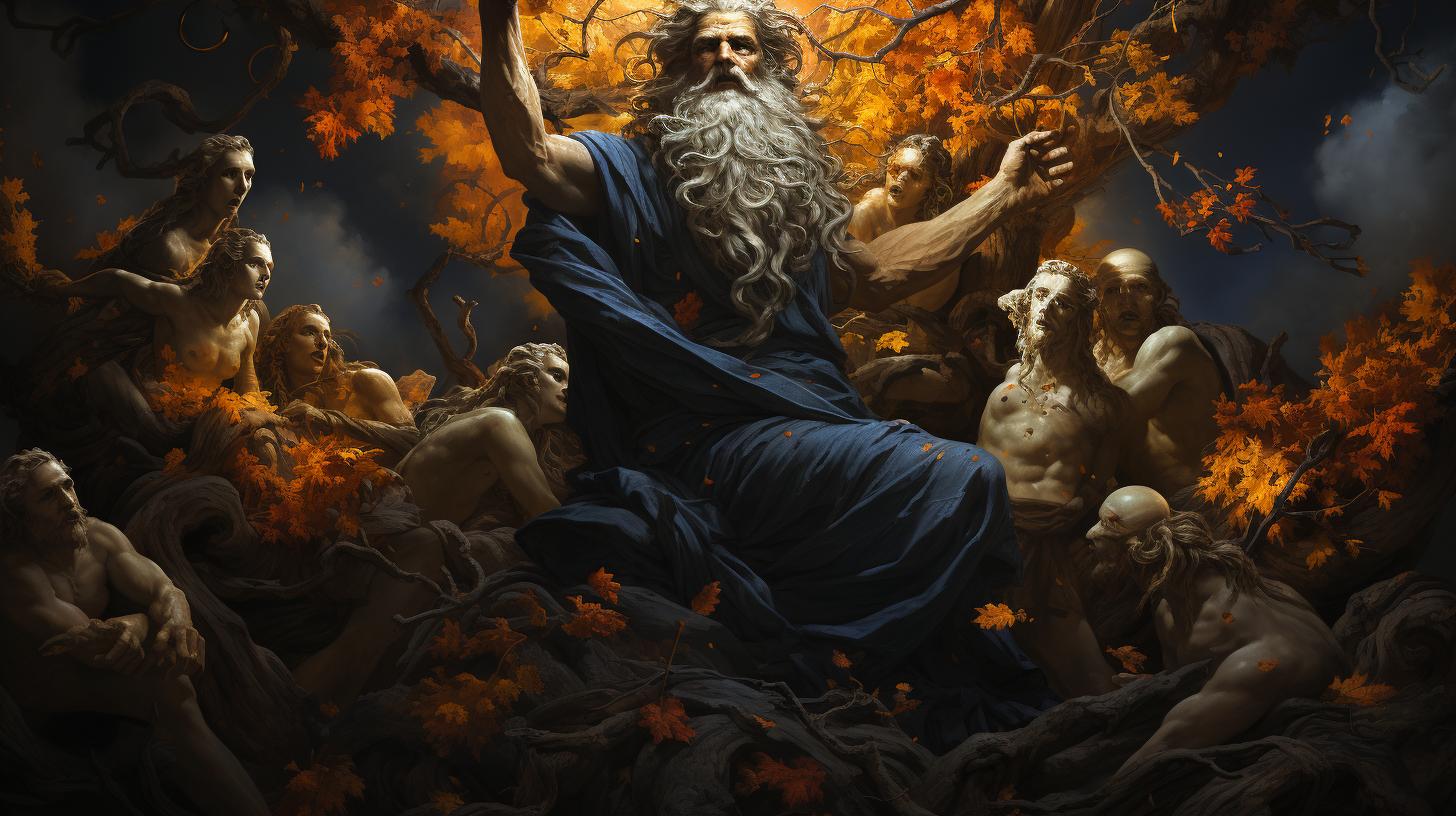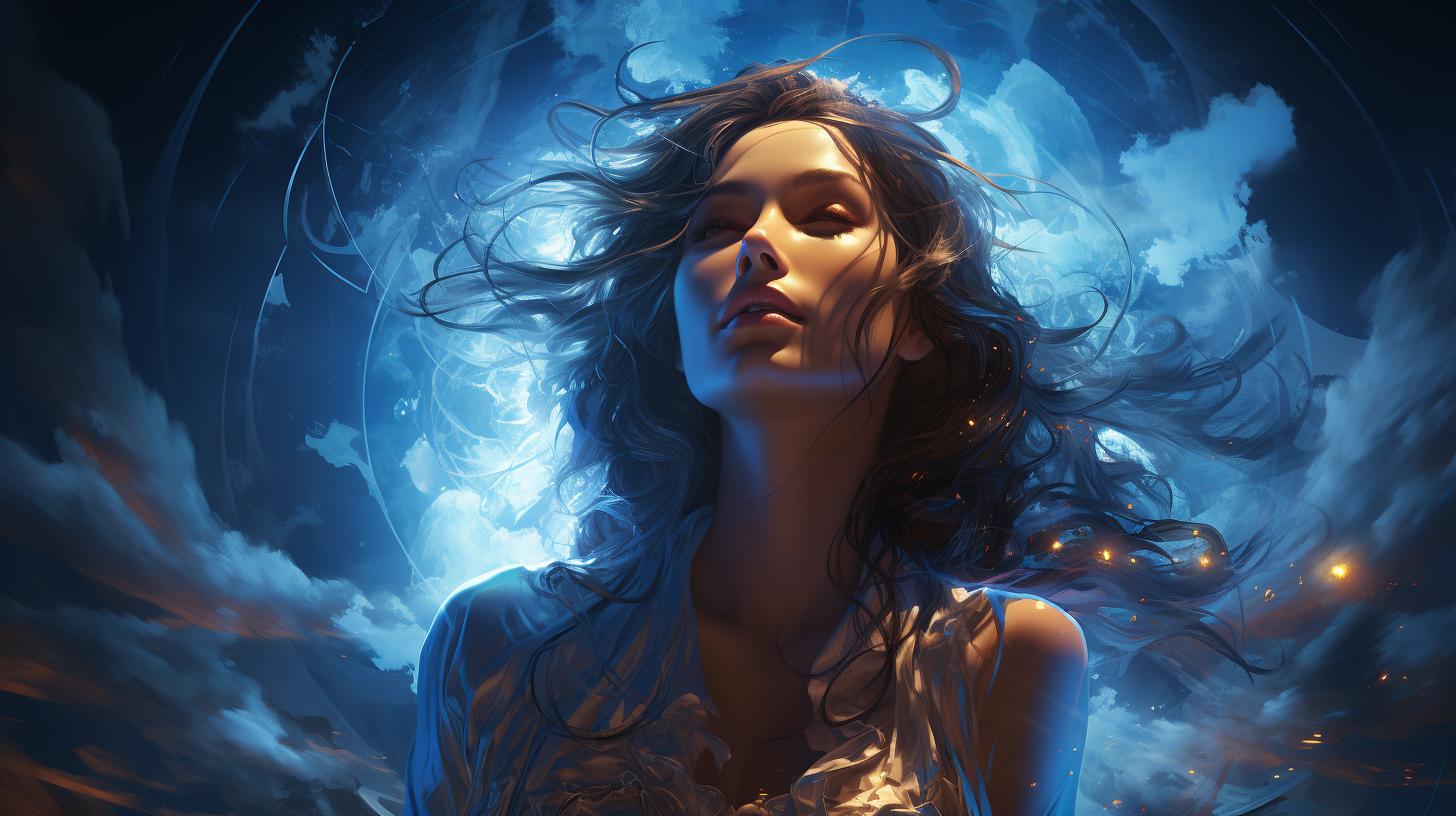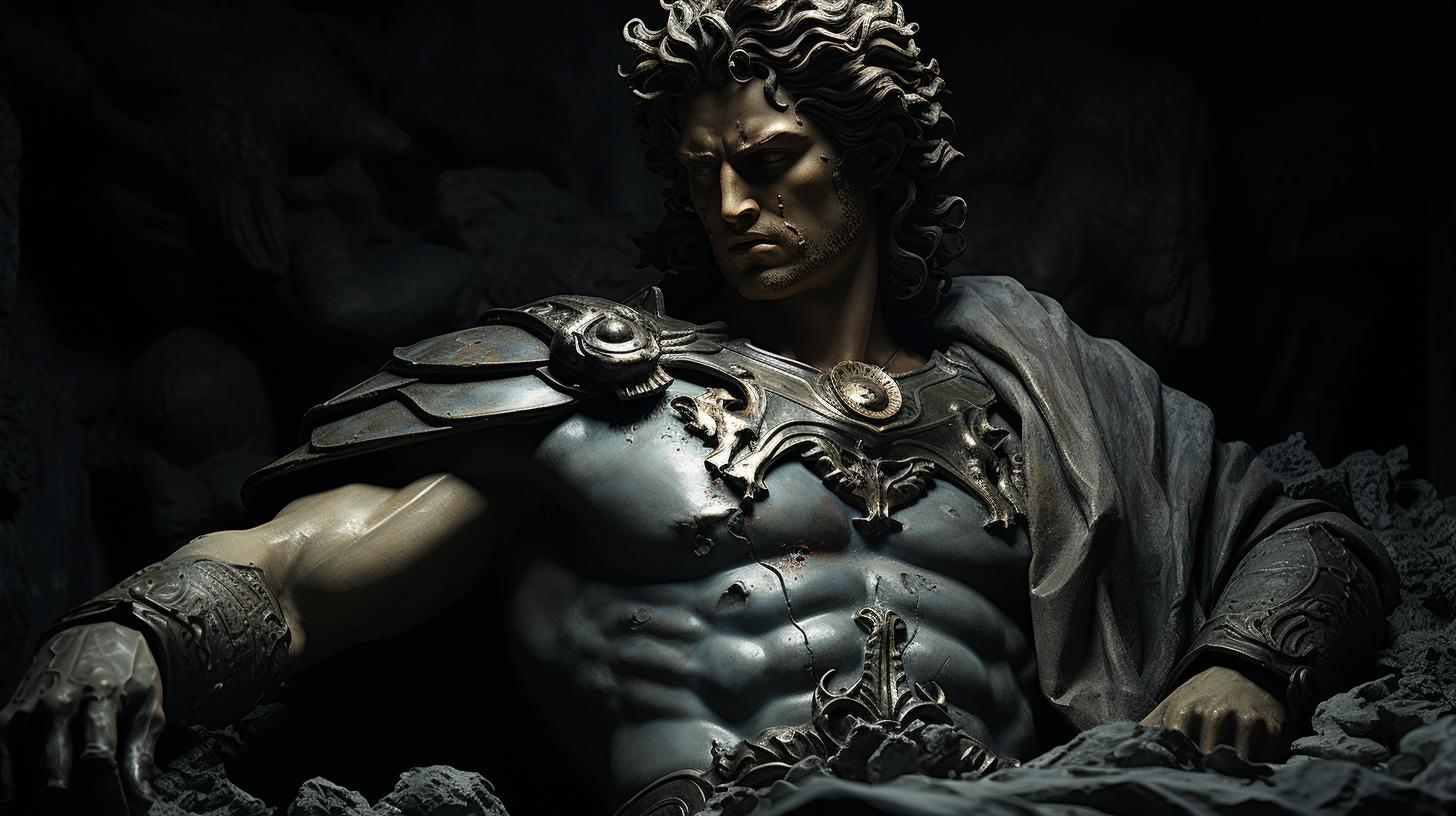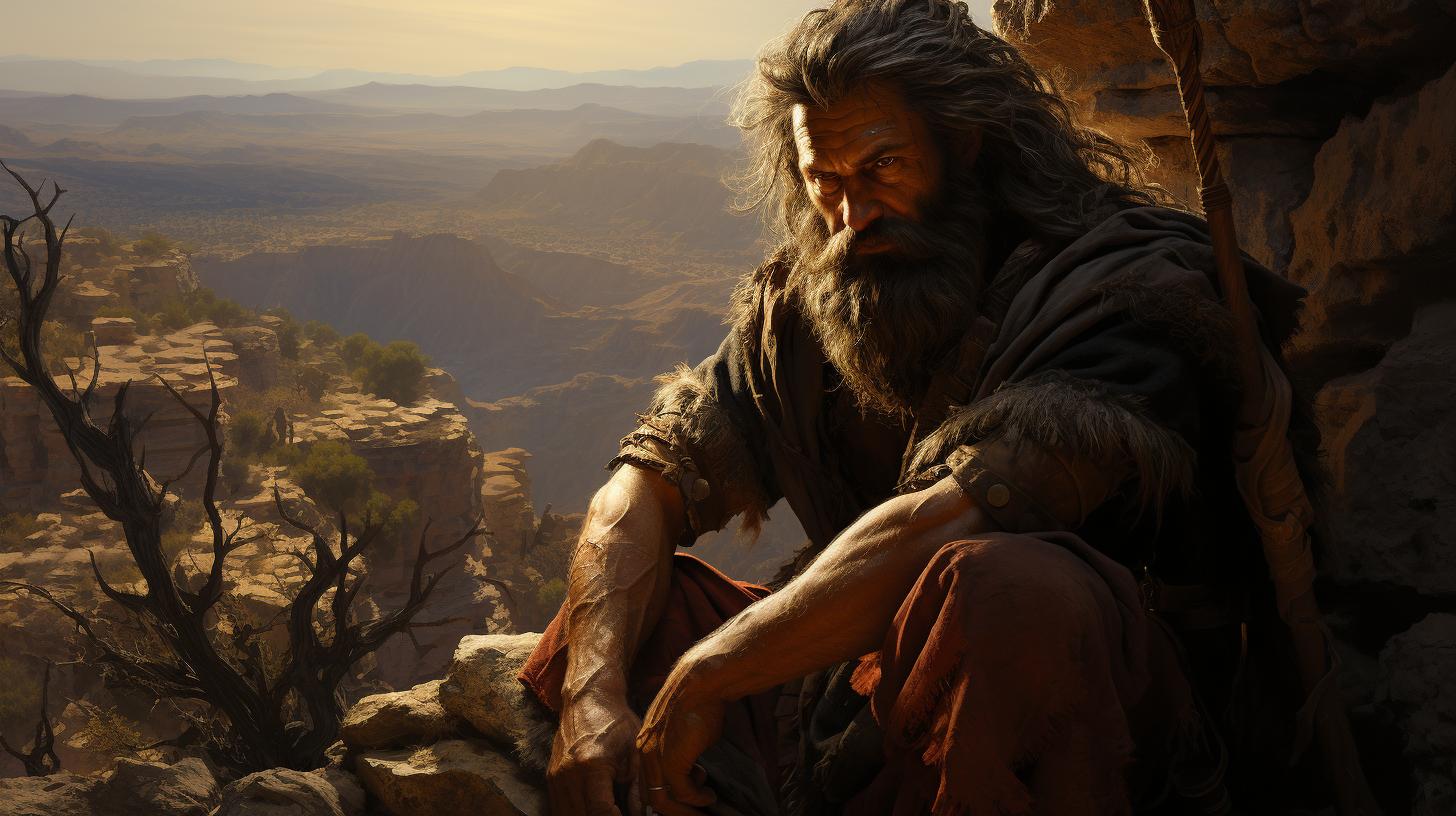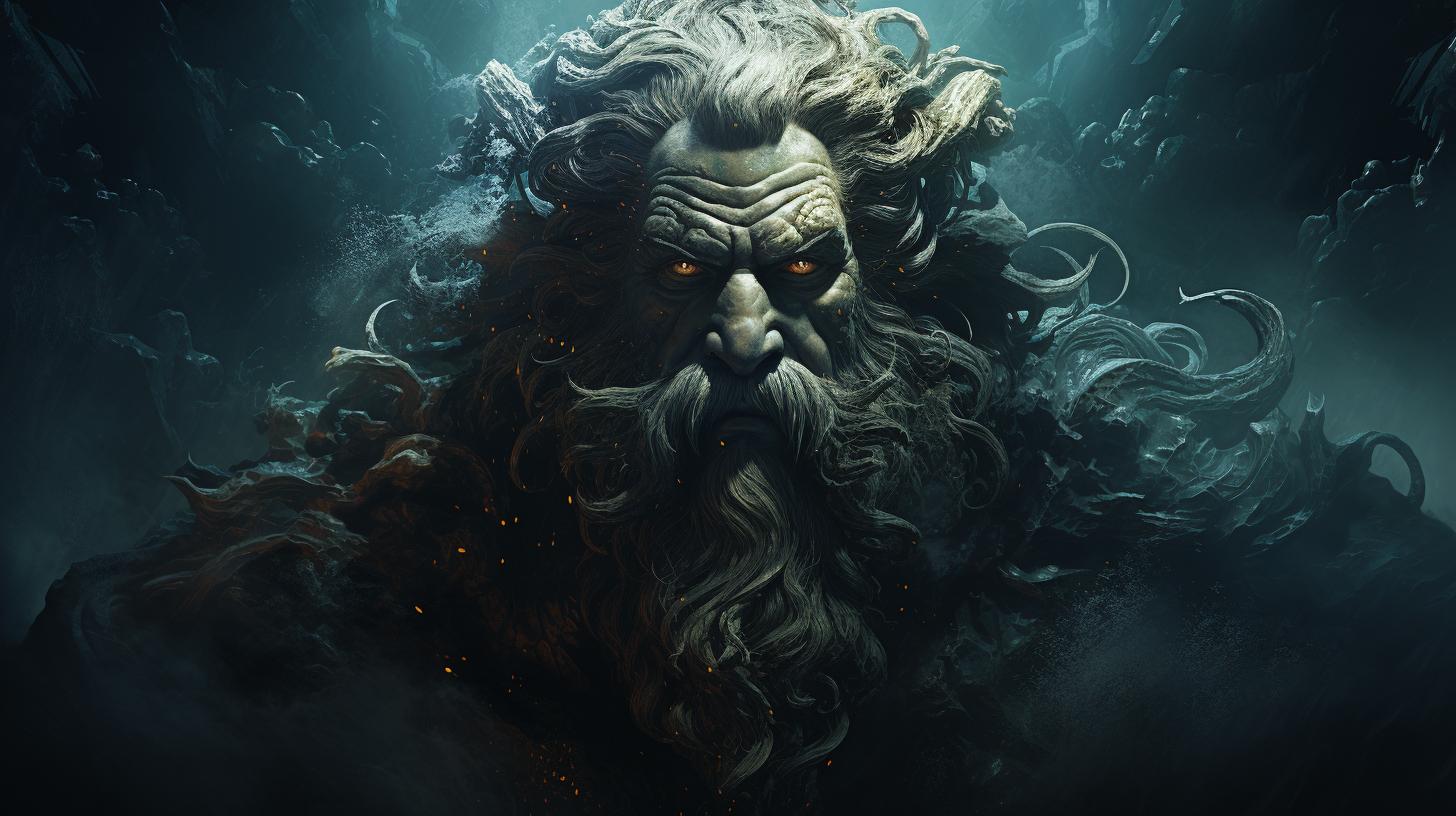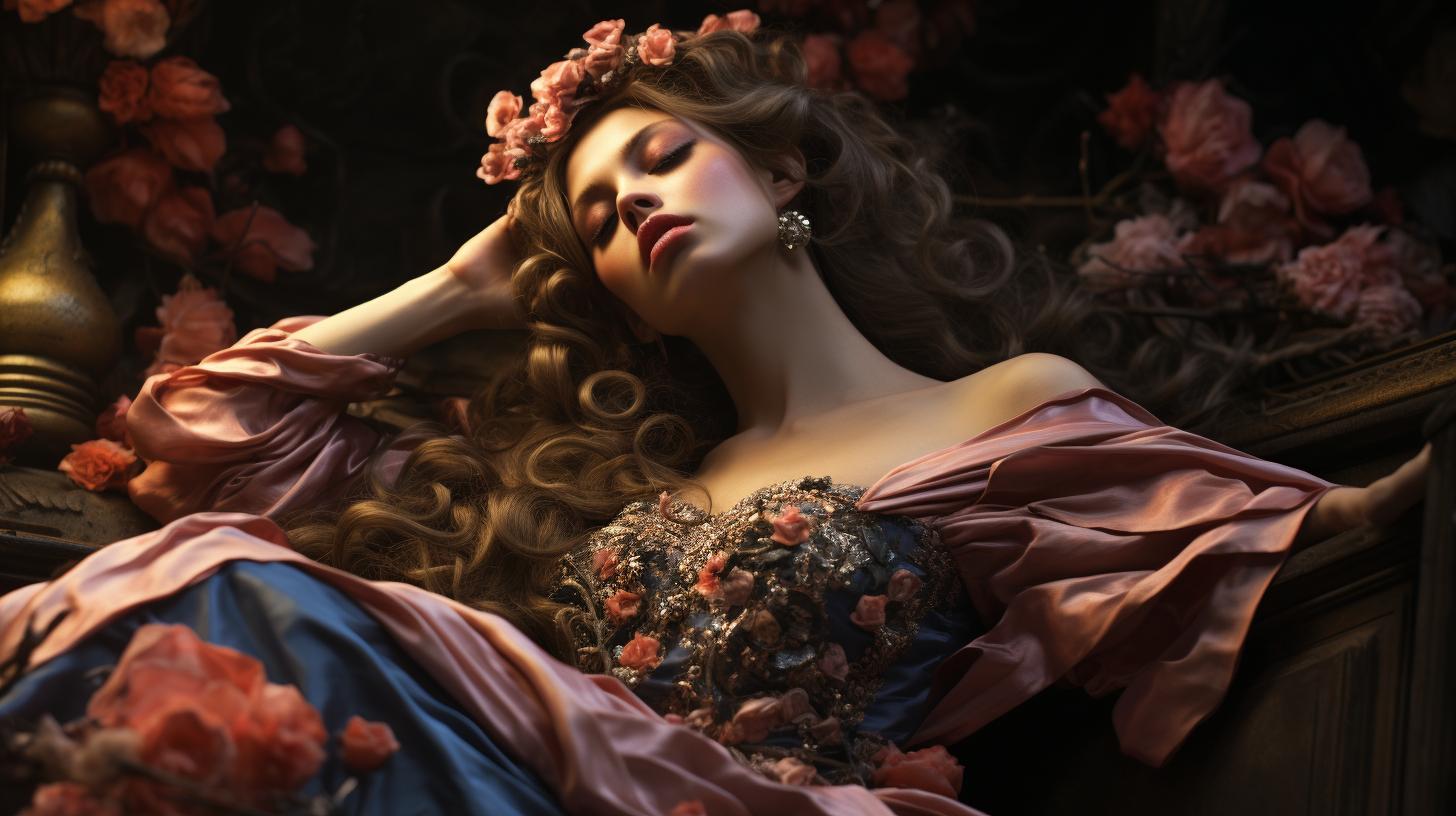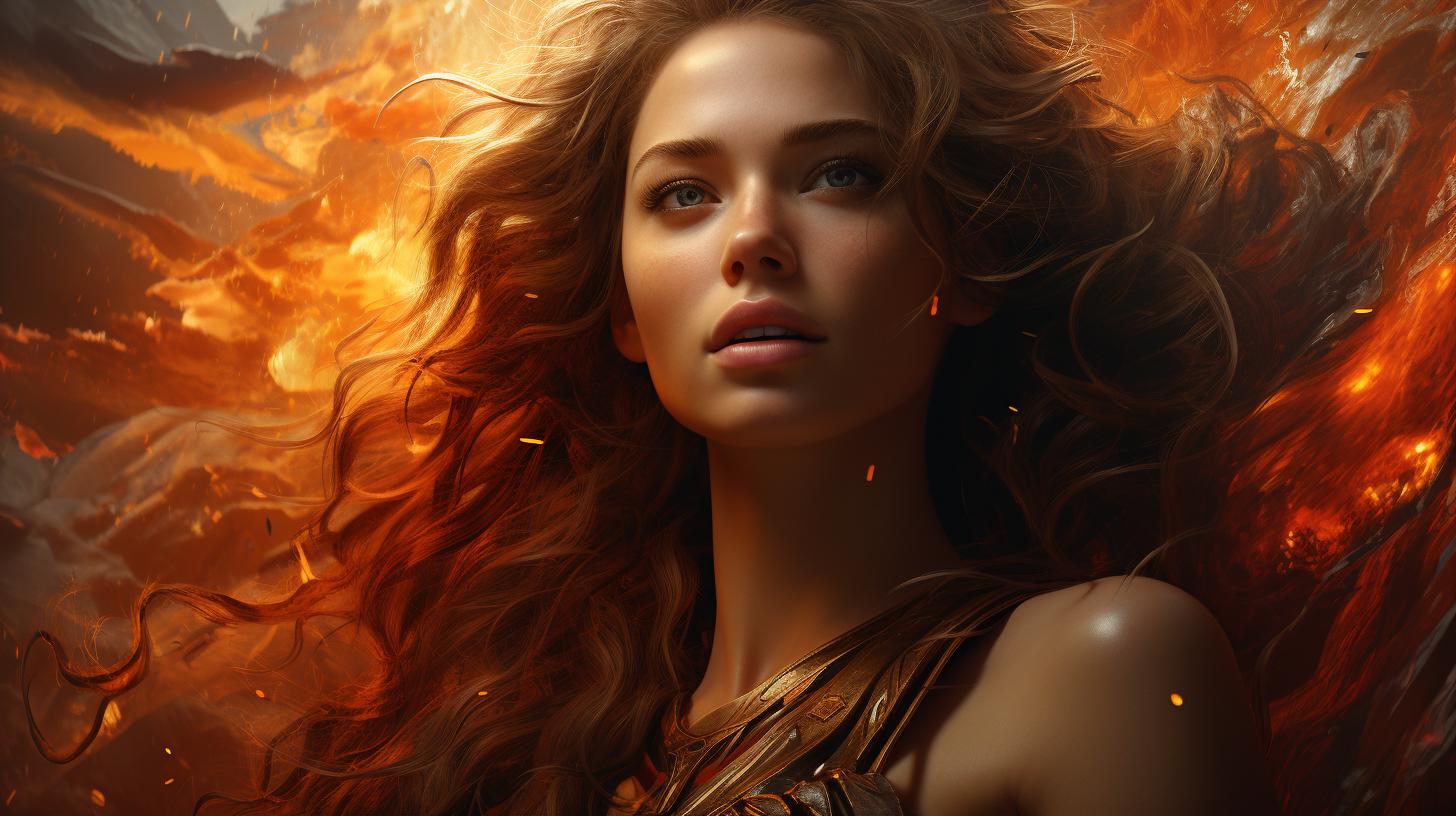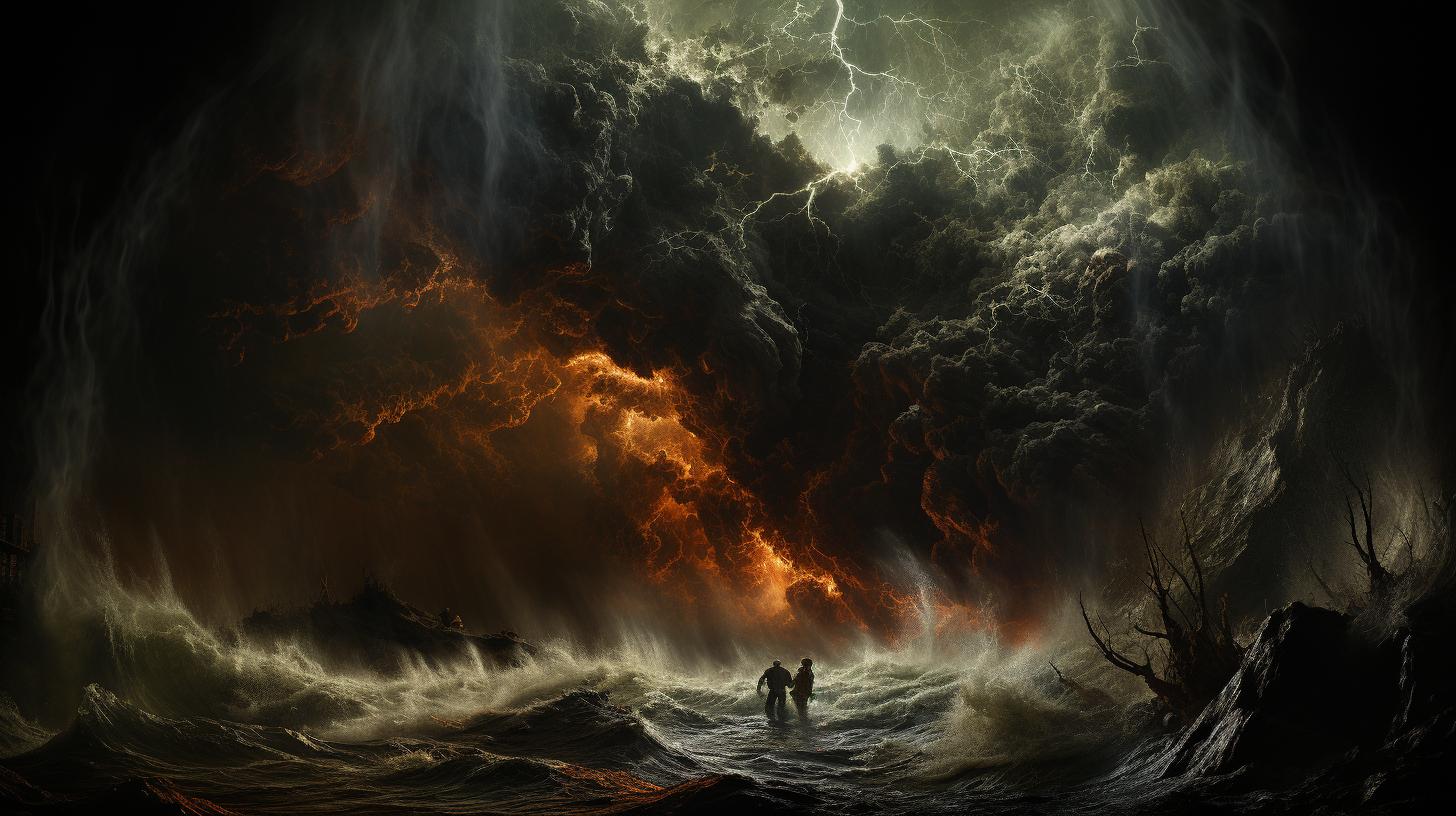Theogony Greek Mythology: Unveiling the Origin and Genealogy of Greek Gods
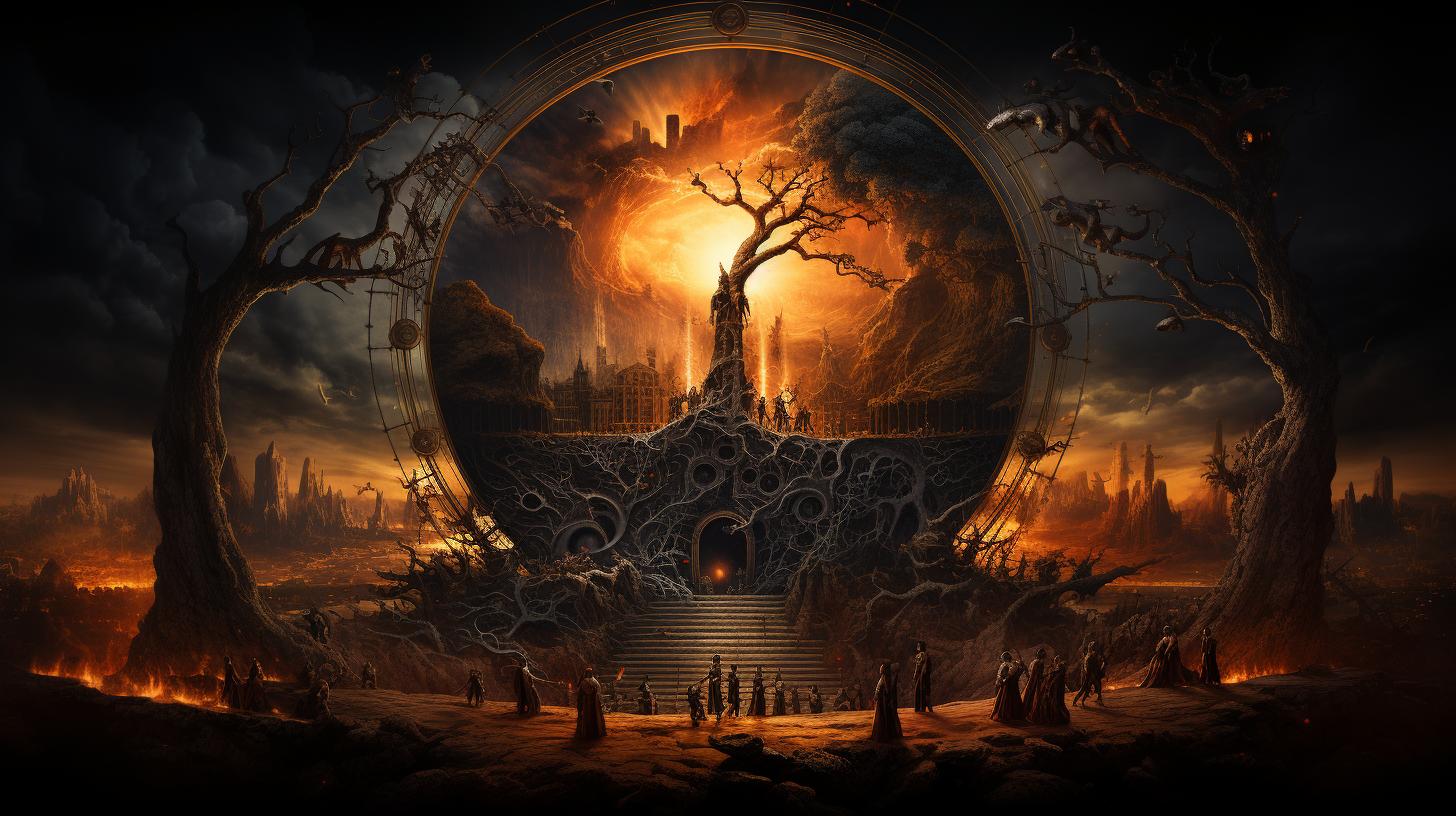
Theogony Greek Mythology provides a comprehensive exploration of the origins and genealogy of the Greek gods. This article delves into Hesiod’s Theogony, shedding light on its significance and themes.
It examines the creation of the universe, power struggles among the gods, divine lineages, Hesiod’s literary contributions, mythical creatures, and the cultural impact of Theogony in ancient Greek beliefs. Join us on this journey to uncover the rich tapestry of Greek mythology.
Hesiod’s Theogony: Exploring the Origins and Genealogy of the Greek Gods
Theogony, a remarkable work by Hesiod, takes us on a captivating journey into the beginnings of Greek mythology. In this section, we will delve into Hesiod’s background and examine his contributions to the field of mythology.
Additionally, we will explore the meaning and significance of Theogony, unraveling its key themes and interpretations through an in-depth analysis of the Hesiod Theogony.
Overview of Hesiod and his Works
Before delving into Theogony, it is crucial to understand the man behind the masterpiece.
Hesiod, a renowned ancient Greek poet, lived during the 8th century BCE and left behind a rich textual legacy. His works, including Theogony and Works and Days, provide invaluable insights into the world of Greek literature, culture, and folklore.
Understanding Theogony: Definition and Significance
What exactly is Theogony? Theogony is an epic poem that recounts the origins and genealogy of the Greek deities, shedding light on their complex relationships and divine lineages. By analyzing this remarkable work, we gain a profound understanding of how ancient Greeks perceived the creation of the universe and the gods’ hierarchy.
Cosmogony in Greek Mythology: Unfolding the Creation of the Universe
The cosmogony in Greek mythology explores the fascinating story of how the universe came into existence.
It all begins with the primordial chaos, a formless void that precedes everything. Within this chaos, the forces of creation and order gradually emerge, giving rise to the gods and the universe itself.
The Primordial Chaos and its Role in Creation
In Greek mythology, the primordial chaos represents a state of immense potential and infinite possibilities. From this formless abyss, various cosmic elements and entities start to take shape, defining the foundations of the universe.
It is within this chaos that the seeds of creation are sown, setting the stage for the emergence of gods, titans, and other mythical beings.
Uranus and Gaia: The First Divine Couple
One of the most important elements in the cosmogony of Greek mythology is the emergence of Uranus (the sky) and Gaia (the earth) as the first divine couple.
They form the ancient cosmic order and become the progenitors of the gods and the physical world. Their union gives birth to a powerful lineage that shapes the future of the Greek pantheon.
The Titans: Children of Gaia and Uranus
Gaia and Uranus become the parents of the Titans, a mighty and influential race of deities in Greek mythology. The Titans play a crucial role in constructing the order of the universe and are central figures in the power struggles among the gods.
Their unique characteristics and relationships lay the foundation for the rise of the Olympians and the shaping of the mythological world.
Zeus and the Succession Myth: Power Struggles among the Greek Gods
Zeus and the Succession Myth is a fascinating tale of power struggles and divine politics in Greek mythology.
This section explores the epic battle for supremacy among the gods and the rise of Zeus as the supreme ruler of Mount Olympus. Let’s delve into the intricacies of this captivating narrative.
Cronus and his Children: The Battle for Supremacy
The struggle for power begins with Cronus, one of the Titans and the ruler of the cosmos. Fearing a prophecy that one of his own children would overthrow him, Cronus devours his offspring.
However, Zeus, hidden away and nurtured in secrecy, ultimately defies his father and leads his siblings in a rebellion against Cronus and the Titans.
Zeus: The Supreme God and Ruler of Mount Olympus
As the battle unfolds, Zeus emerges as the powerful and cunning leader.
He wages war against Cronus and the Titans, employing strategic alliances and employing his mighty thunderbolt as a formidable weapon. Zeus’s victories solidify his position as the supreme god, establishing his reign over Mount Olympus and the heavens.
The Titans’ Fate and the Rise of the Olympians
The defeat of Cronus and the Titans marks a significant turning point in Greek mythology. Zeus, along with his brothers and sisters, known as the Olympians, ascends to power.
The Titans are banished to Tartarus, while the Olympian gods establish a new order, presiding over various aspects of life and controlling the forces of nature.
As the Succession Myth unfolds, it reveals the complexities of divine power dynamics and the establishment of a new ruling pantheon.
The rise of Zeus as the supreme god and subsequent dominion over Mount Olympus shapes the course of Greek mythology and influences ancient Greek beliefs and practices.
The Birth of Gods and Goddesses: Divine Lineage and Family Trees
In the fascinating realm of Greek mythology, the birth of gods and goddesses is a captivating aspect that unveils intricate divine lineages and intertwining family trees.
This section delves into the rich tapestry of the pantheon, focusing on the offspring of Zeus, the mighty ruler of Mount Olympus, and the diverse array of deities that emerged from his divine bloodline.
Zeus’ Offspring and the Pantheon of Greek Deities
Zeus, the supreme god, had numerous divine children who played significant roles in Greek mythology. From the mighty Ares, the god of war, to Apollo, the god of music and prophecy, and Athena, the goddess of wisdom and strategic warfare, the pantheon of Greek deities expanded with each generation.
Exploring the stories and attributes of Zeus’ offspring offers a profound insight into the multifaceted nature of the Greek gods.
Stories of Hera, Athena, Aphrodite, and Other Prominent Goddesses
Among the prominent goddesses in Greek mythology, Hera, the queen of gods, held a prominent place.
Known for her fierce loyalty and protective nature, Hera played a pivotal role in numerous myths and legends. Similarly, Athena, the goddess of wisdom and craft, embodied strategic prowess and intellectual power.
The enchanting Aphrodite, the goddess of love and beauty, captivated hearts with her irresistible charm. Delving into the stories and characteristics of these goddesses provides a deeper understanding of the divine feminine in Greek mythology.
The Sons and Daughters of Zeus: Heroes and Mortals
While the offspring of Zeus included mighty gods and goddesses, a notable aspect of his divine lineage are the mortal heroes born from his extramarital affairs. These demigods, such as Heracles, Perseus, and Helen of Troy, possessed exceptional strengths, skills, and traits, often embarking on epic quests and facing extraordinary challenges.
Their captivating tales intertwine with the divine narratives, blurring the boundaries between gods and mortals and illustrating the complex relationships between both realms.
Theogony and Works and Days: Exploring Hesiod’s Literary Contributions
In this section, we delve into the literary contributions of Hesiod, particularly focusing on his works, Theogony and Works and Days.
These pieces provide valuable insights into ancient Greek culture, beliefs, and moral teachings. Let’s explore the moral and practical advice offered in Works and Days, examine the connection between Theogony and Works and Days, and analyze the historical significance of Hesiod’s works.
Works and Days: Moral and Practical Advice from Hesiod
Works and Days serves as a moral guide for ancient Greeks, offering practical advice on how to lead a virtuous life. Hesiod emphasizes the importance of hard work, honesty, and justice, urging individuals to embrace agricultural labor and adhere to proper conduct in their daily lives.
The poem also addresses themes such as the consequences of laziness, the value of self-sufficiency, and the pursuit of righteousness.
The Connection Between Theogony and Works and Days
While Theogony focuses on the genealogy and origin of the Greek gods, Works and Days builds upon this foundation, intertwining mythology with practical wisdom. Hesiod seamlessly connects the divine world of Theogony to the mortal realm addressed in Works and Days, emphasizing the relevance of divine laws and ancestry to human existence.
This connection sheds light on the interconnectedness of gods and mortals, merging the mythological and ethical aspects of Hesiod’s work.
Literary Analysis and Historical Significance of Hesiod’s Works
Hesiod’s Theogony and Works and Days hold immense historical and cultural significance. Through a literary analysis, we gain a deeper understanding of Hesiod’s narrative style, his use of descriptive language, and the symbolism embedded within his works.
Additionally, Hesiod’s poems provide invaluable insights into the religious beliefs, societal values, and agricultural practices of ancient Greece. Studying these works allows us to decipher the cultural fabric of the time and appreciate the lasting impact of Hesiod’s writing on subsequent generations.
Mythical Creatures and Beings in Theogony: From Titans to Cyclopes
Theogony delves into a captivating world of mythical creatures and beings, unraveling the intricate tapestry of Greek mythology. From the powerful Titans to the skilled Cyclopes, this section explores the diverse figures that populate Hesiod’s epic poem.
These extraordinary beings play crucial roles in shaping the divine order and influencing the fate of gods and mortals alike.
Titans and their Role in Greek Mythology
The Titans, offspring of Gaia and Uranus, represent the older generation of gods in Greek mythology. These formidable beings, including Cronus, Oceanus, and Rhea, possess immense power and influence.
Titans are central figures in Theogony, as their struggle for supremacy against the Olympians forms a pivotal conflict in the divine hierarchy. Discover the legends surrounding these iconic deities and their impact on the Greek pantheon.
The Cyclopes: Forgers of Zeus’ Thunderbolt
Among the most fascinating figures in Greek mythology are the Cyclopes. These one-eyed giants, renowned for their exceptional craftsmanship, played a crucial role in the divine narrative. Notably, they forged Zeus’ thunderbolt, the weapon that symbolizes his reign as the king of gods.
Uncover the tales of the Cyclopes’ feats, their encounters with mortals, and their significance in the grand tapestry of Theogony.
Other Notable Creatures and Beings in Theogony
- The Hundred-Handed Ones: Gigantic beings who aided Zeus in the Titanomachy
- Chimaera: A fearsome fire-breathing creature with the body of a lion, head of a goat, and tail of a serpent
- Sphinx: A mystical creature with the head of a human and the body of a lion, known for posing riddles to travelers
- Gorgons: Monstrous female creatures with snakes for hair and the ability to turn people to stone
This section also explores other intriguing beings that inhabit the ancient Greek mythological landscape, each with their own unique stories and contributions to the rich tapestry of Theogony.
Immerse yourself in the extraordinary realm of these mythical creatures and delve into the nuances of their roles and significance within Greek mythology.
Theogony and Its Cultural Impact: Ancient Greek Beliefs and Influence
Theogony, with its rich mythology and genealogical narratives, holds significant cultural importance in ancient Greek beliefs.
This section explores the profound relationship between Theogony and ancient Greek religion, as well as its influence on various forms of art, literature, and philosophy. Furthermore, we will delve into Theogony’s enduring relevance in contemporary understanding of Greek mythology.
The Relationship between Theogony and Ancient Greek Religion
Theogony played a pivotal role in shaping ancient Greek religion by providing a detailed account of the gods’ origins and their hierarchies. It served as a foundational text that depicted the divine lineage and established the belief system of the ancient Greeks.
Theogony’s influence extended to religious practices, rituals, and the worshipping of specific gods and goddesses associated with the mythical narratives it presented.
The Influence of Theogony on Art, Literature, and Philosophy
Theogony’s influence on art, literature, and philosophy cannot be overstated. Its captivating tales and intricate character relationships inspired numerous artistic expressions, including sculptures, pottery, and paintings that depicted the gods and goddesses mentioned in the poem.
Theogony’s influence also permeated Greek literature, influencing the works of subsequent poets, playwrights, and philosophers, who drew inspiration from its themes of power, destiny, and the complexities of divine existence.
Theogony’s Relevance in Contemporary Understanding of Greek Mythology
Despite being written over two millennia ago, Theogony maintains its relevance in contemporary scholarship on Greek mythology. Scholars and enthusiasts continue to study and analyze Theogony to gain insights into the ancient Greek worldview, religious beliefs, and social structures.
It serves as a valuable source for understanding the ancient Greek pantheon, the motivations and actions of the gods, and the cultural and historical context in which these myths emerged.
.

